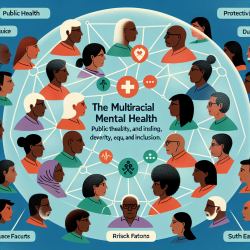Introduction
In the rapidly evolving field of online therapy, staying updated with the latest knowledge and skills is crucial for practitioners. A recent study titled The growth of continuing medical education by R.K. Richards, published in the Yale Journal of Biology and Medicine, highlights the significance of continuing education in enhancing professional competencies. This blog explores how practitioners can leverage the findings from this research to improve their skills and deliver exceptional therapy services.
The Power of Continuing Medical Education
The research underscores the pivotal role of continuing medical education (CME) in maintaining and enhancing the skills of healthcare professionals. For online therapists, CME offers a structured path to stay abreast of the latest therapeutic techniques, technological advancements, and evidence-based practices. Here are some key takeaways from the study:
- Continuous Learning: Engaging in regular educational activities helps practitioners keep their knowledge current, which is essential in a field as dynamic as online therapy.
- Skill Enhancement: CME provides opportunities to refine existing skills and acquire new ones, enabling therapists to offer more effective and diverse interventions.
- Professional Growth: Participation in CME activities is linked to improved job satisfaction and career advancement, as practitioners feel more competent and confident in their roles.
Implementing Research Outcomes in Online Therapy
For online therapy practitioners, integrating the outcomes of this research into daily practice can lead to significant improvements in service delivery. Here’s how:
- Adopt a Lifelong Learning Mindset: Embrace the philosophy of lifelong learning by actively seeking out CME opportunities. This could include webinars, workshops, and online courses tailored to online therapy.
- Utilize Data-Driven Approaches: Incorporate evidence-based practices into your therapy sessions. Use data to inform your decisions and track the progress of your clients.
- Collaborate with Peers: Engage with other professionals in the field through forums and professional networks. Sharing insights and experiences can lead to new learning opportunities and collaborations.
Encouraging Further Research
While the study provides valuable insights, it also opens the door for further research. Practitioners are encouraged to contribute to the body of knowledge by conducting their own studies or collaborating with academic institutions. Exploring new areas such as the impact of digital tools on therapy outcomes or the efficacy of remote interventions can provide deeper insights into the future of online therapy.
Conclusion
By embracing the principles of continuing medical education, online therapy practitioners can enhance their skills, improve client outcomes, and achieve greater professional fulfillment. To delve deeper into the findings of this research, I encourage you to read the original research paper: The growth of continuing medical education.










